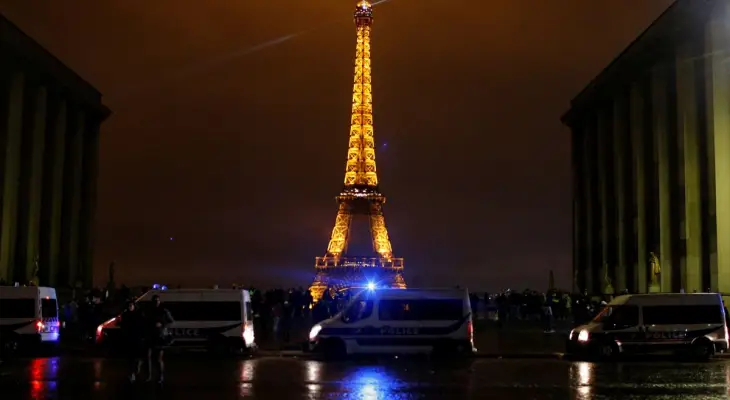Eiffel Tower Temporarily Closed in France Following Protests

Holiday Ayo - A wave of protests has rocked France again, with more than 200 locations across the country hosting mass demonstrations in the middle of last week. As a result, the Eiffel Tower had to be closed.
At least 24,000 people, including workers, retirees, and students, began a long march from Place d'Italie on Thursday (October 1) afternoon.
The iconic Eiffel Tower was temporarily closed due to the workers' strike.
There is currently no information on when the Eiffel Tower will reopen.
According to Euronews, Monday (October 6), the nationwide strike is part of a series of protests that have been ongoing since September.
The mass demonstrations were sparked by political uncertainty and increasingly heated budget discussions.
This time, the protest was led by France's main labor union, the CGT, which is estimated to number 600,000.
However, union representatives acknowledged that the number of people taking to the streets was down from the large demonstration last September, which attracted around half a million demonstrators.
Trade unions are urging Prime Minister Sebastien Lecornu to abandon his predecessor's budget proposal.
The plan includes a freeze on social benefits and other austerity measures that they fear will further weaken the purchasing power of the middle class and low-income workers.
They are also demanding that the government impose higher taxes on the wealthiest citizens.
"The social anger is very strong," said CGT leader Sophie Binet.
She emphasized that the unions want social justice and a fair distribution of budgetary sacrifices across all levels of society.
Prime Minister Sebastien Lecornu, who took office last month, has yet to present details of his new budget and has not yet formed a cabinet.
He is scheduled to deliver a general policy speech in parliament soon and begin meetings with various opposition leaders on Friday (October 4th), including far-right Marine Le Pen, as well as representatives of the Socialist Party, the Green Party, and the Communist Party.
The support or threat of a no-confidence motion from the opposition groups will be crucial in future budget deliberations.
According to local media reports, the government is considering several measures to ease the burden of living costs, including income tax cuts for low-income couples and payroll tax reductions for overtime.
Previously, the minority government led by François Bayrou collapsed in early September after losing a no-confidence vote.
Bayrou had proposed sweeping budget cuts to improve the country's finances.
France's budget deficit last year reached 5.8% of Gross Domestic Product (GDP), nearly double the European Union's 3% limit.
Meanwhile, the national debt has ballooned to more than 3.3 trillion euros, or about 114% of total economic output.
Bayrou had proposed spending cuts of 44 billion euros by 2026, including the elimination of two national holidays.
"It's true, this is the first time there have been three days of strikes and protests in a month without any response from the government or clarity on the budget," Sophie responded.
"Why are we protesting now? Because we feel it's time for decisions to be made and we want to be heard," she added.








Leave a comment